Go Lean Commentary
He who does nothing, makes no mistakes. – Old Adage
Inaction is a reality, not a good one, but a real option all the same. Unfortunately, we do not need inaction from our leaders, we can do “nothing” all by ourselves. Remember this idiom/proverb:
We reap what we sow.
Using the agricultural framework, we know if we sow wheat, during the harvest, we will reap wheat, but if we sow nothing, this does not mean that we get nothing in return. No, we get something bad! Back to the agricultural reference, we get weeds and insects. Truthfully in life, if our leaders do nothing, do not do their duty, the end result could be:
Death.
This is due to the implied Social Contract that we are all under. Despite the versions of constitutions or the forms of government, the principles are similar in the expectation of society versus their government. That Social Contract is summarized as follows:
Citizens surrender some of their freedoms and submit to the authority of the State in exchange for protection of remaining natural and legal rights.
This is not just theoretical! The world is enduring the Coronavirus COVID-19 crisis right now; people are dying and economies are being wrecked. Yet some political leaders are accused of doing nothing … for far too long. It has been assessed that the inaction has led to death. See this assertion in the New York Times news-article and a related AUDIO-Podcast here; (these media productions consider an American example and the European examples of Boris Johnson versus Angela Merkel, the Prime Minster of the UK and the Chancellor of Germany respectively):
Title: Inaction that cost lives
By the final days of February, many public health experts were sounding the alarm about the coronavirus, and some people were listening.
In the San Francisco area, major employers began directing their employees to stay home. Washington State declared a state of emergency. South Korea, Vietnam and other countries ordered aggressive measures.
President Trump did not.
On Feb. 26, he said — incorrectly — that the number of cases was “going very substantially down, not up.” As late as March 10, he promised: “It will go away. Just stay calm. It will go away.”
Some local leaders also continued to urge business as usual. In early March, Mayor Bill de Blasio told New Yorkers to “get out on the town despite coronavirus.”
This kind of advice appears to have cost tens of thousands of American lives, according to a new analysis by researchers at Columbia University.If the U.S. had enacted social-distancing measures a week earlier than it did — in early March rather than mid-March — about 36,000 fewer Americans would have died, the study found. That’s more than one third of the current death toll, which is about 100,000.
If the measures had been in place two weeks earlier, on March 1, the death toll would be 54,000 lower.
These are hypothetical estimates, of course, and they’re unavoidably imprecise. But they are consistent with real-world evidence from places that responded to the virus more quickly, including San Francisco, Washington State, South Korea and Vietnam — where per capita deaths have been much lower than the U.S. average.
Jeffrey Shaman, the leader of the Columbia research team, told The Times: “It’s a big, big difference. That small moment in time, catching it in that growth phase, is incredibly critical in reducing the number of deaths.”
Related: Trump and some top White House officials are arguing that the reported virus death toll is overstated, The Times reports. Public health experts overwhelmingly reject this view.
A simple way to understand why experts believe the official count is actually understated: The number of Americans who have died in recent weeks is much higher than normal.
Source: Posted and retrieved May 21, 2020 from: https://messaging-custom-newsletters.nytimes.com/template/oakv2?campaign_id=9&emc=edit_nn_20200521&instance_id=18657&nl=the-morning&productCode=NN®i_id=69450329&segment_id=28666&te=1&uri=nyt%3A%2F%2Fnewsletter%2F8d437750-97d5-41dd-b68b-8fd573bf28c2&user_id=de9db917120d820078919cfacc03d8b3
—————–
AUDIO Podcast – Coronavirus Pandemic Tests Leadership Styles In U.K, Germany – https://www.npr.org/2020/05/21/859991289/coronavirus-pandemic-tests-leadership-styles-in-u-k-germany
Morning Edition
Posted May 21, 2020 – U.K. Prime Minister Boris Johnson and Germany’s Chancellor Angela Merkel present different visions of leadership during the coronavirus pandemic.
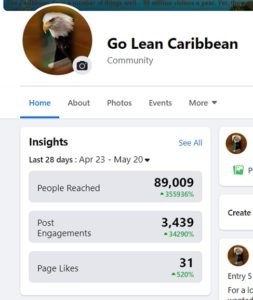 In 2013, the book Go Lean…Caribbean was introduced to prepare the stakeholders in the Caribbean for the turn-around and reboot that was vital if there was to be any hope for this society. The book introduced the technocratic Caribbean Union Trade Federation (CU) and identified the two approaches for formulating change:
In 2013, the book Go Lean…Caribbean was introduced to prepare the stakeholders in the Caribbean for the turn-around and reboot that was vital if there was to be any hope for this society. The book introduced the technocratic Caribbean Union Trade Federation (CU) and identified the two approaches for formulating change:
- Bottoms Up
- Top Down
Since then, we have fully engaged the people in the Bottoms Up approach. We have communicated to them and convinced, cajoled and coalesced with them to get a receptive ear to the idea of regional harmony among the 30 member-states. The response has been overwhelming and positive.
See the image to the right depicting the responses we have measured on the community’s Facebook Page, for just the last month; (we also publish on Twitter, Instagram and send out direct emails, which are all shared again and again, thereby extending the reach exponentially).
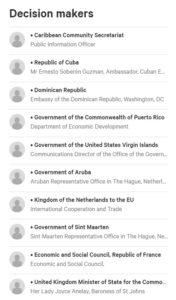 In addition to the people, we have also messaged to the societal leaders (politicians, religious, civic and business leaders). In fact, there is a petition to the applicable Heads of Government for each member-state, urging them to lean-in to the tenants of this Go Lean roadmap. In fact, of the 1000+ blog-commentaries, the last 700 contain a button to petition the leaders accordingly. These petitions are forwarded directly to the appropriate addresses (i.e. the UK’s Home Office receives the petition every time someone “Click to Balk” … in representation of the British Overseas Territories). In fact, see the destination list of that petition in the image to the right here.
In addition to the people, we have also messaged to the societal leaders (politicians, religious, civic and business leaders). In fact, there is a petition to the applicable Heads of Government for each member-state, urging them to lean-in to the tenants of this Go Lean roadmap. In fact, of the 1000+ blog-commentaries, the last 700 contain a button to petition the leaders accordingly. These petitions are forwarded directly to the appropriate addresses (i.e. the UK’s Home Office receives the petition every time someone “Click to Balk” … in representation of the British Overseas Territories). In fact, see the destination list of that petition in the image to the right here.
So there it is; we advocate to the “Indians and to the Chiefs”. 🙂
The Go Lean book presented strategies, tactics and implementations to pursue the goal of reforming and transforming the Caribbean region. The “Improve Leadership” mission was stated as follows regarding these narrow objectives (Page 46):
- Fix the broken systems of governance in our region and deter against movements towards Failed-States, and any preying upon our people. We must protect the most vulnerable among us and guarantee the human/civil rights of our women and minorities. Basic to any governmental effort is the collection of sufficient revenues; the CU must therefore foster new revenue streams, financing options, and a professional civil service to directly benefit the local governance.
- Ensure the fiscal integrity of the region, by providing proper oversight and support for the depository institutions, and insuring deposit accounts up to a competitive limit compared to other western democracies.
Good Leadership is missing in many Caribbean communities – sometimes, elected leaders simply do nothing in solving problems! Don’t get it twisted … Good Leadership is more than just “good people doing good deeds”. No, bad people can also exercise good leadership – think “Organized Crime”. Good people can also do bad leadership – remember the expression: “the road to Hell is paved with good intentions”. So Good Leadership doesn’t just happen; it is an Art and a Science.
It is like a muscle that must be exercised; doing nothing is not exercise. For this reason, there is an actual advocacy in the Go Lean book to address the Art, the Science and all the best-practices for good people to do good in terms of leadership.
This is a good purpose; see here some of the specific plans, excerpts and headlines from Page 171, entitled:
10 Ways to Improve Leadership
| 1 | Lean-in for the Caribbean Single Market Confederation Treaty: Caribbean Union Trade Federation (CU) The CU treaty allows for the integration of the Caribbean region into one market, thereby creating a single economy of 30 member-states, 42 million people and a GDP of over $800 Billion (per 2010 figures). The CU maintains a philosophy that the region must prepare for the economic battles of globalization as if it’s a military campaign. As such, the leaders that direct the battles must be skilled in trade strategies and tactical endeavors. The focus of this advocacy therefore is on the individuals, not the organization or institutions, rather the attitudes and influences to achieve victory. There are lessons to learn for the application [from the book, ] the Art of War, [the ancient Chinese military treatise attributed to Sun Tzu, a high-ranking military general, strategist and tactician,] by local, national and federal officials in forging good leadership. |
| 2 | Leaders Must Inspire, Not Just Direct There are top leaders and experts within business, politics, art, sports, organized crime, philanthropy and health care that are skilled in the application of the leadership, ethics and visions raised in the 13 chapters of Sun Tzu’s “The Art of War” [133]. The consistent theme is that leaders must inspire, not just direct. Followers should envision the successful destination and their role in the goal, not just follow directions, this way they can work for success at the micro level. “For want of a horseshoe, a horse was lost; for want of a horse a soldier was lost; for want of a soldier a Calvary was lost; for want of a Calvary a battle was lost; for want of a battle, a war was lost”. |
| 3 | Genius Qualifier – Interpersonal |
| 4 | Project Management and Technocracy The CU’s embrace of a technocratic ethos will allow for projects and services to be optimally delivered, due to strict project management (PM) disciplines. But while PM is for organizational delivery, the CU managers need not just be bureaucrats, rather a technocracy require leadership training so as to align the detail management to the overall vision. |
| 5 | Big Data Intelligence The CU organizes the Trade battles under the principles of Trade SHIELD (Strategic, Harvest, Interdiction, Enforcement, Logistic & Delivery). While this is a military icon, the purpose of this principle is to optimize trade within and for the region. The Harvest feature of SHIELD calls for capturing and measuring statistical data and abstracts from all the trade focused activities. The CU’s Commerce Department will spearhead the effort to capture the trade data, thereby measuring and gleaning intelligence on many aspects of Caribbean life (economic, consumption, societal values, etc). |
| 6 | Collaboration Culture |
| 7 | Remote Management Tools |
| 8 | Legislative Review |
| 9 | Federal Civil Servants Personnel Development |
| 10 | Train the Trainers |
Every month, the movement behind the 2013 book Go Lean…Caribbean presents a Teaching Series on a subject germane to Caribbean life. For this May 2020, our focus is on Good Leadership. By coincidence, the world is battling the impact and recovery of the Coronavirus pandemic on society. So we have the opportunity to look-listen-and-learn from the supporting evidence of the good, bad and ugly examples of leadership on display today. This is entry 1 of 6 for this series, which details that there is much hard-work and heavy-lifting that our leaders need to do to foster good leadership abilities.
The full catalog for this month’s series is listed as follows:
- Good Leadership – Inaction could be deadly
- Good Leadership – Caring builds trust; trust builds caring
- Good Leadership – Agile: Next Generation of leadership and project delivery
- Good Leadership – Hypocrisy cancels out Law-and-Order
- Good Leadership – Example – “Leader of the Free World”?
- Good Leadership – Example – For mitigating crime
There are no Ands, Ifs or Buts; we need Good Leadership to survive this COVID-19 pandemic. Hundreds of thousands have died, so this is not just an academic discussion. Even in our Caribbean region, we have experienced losses; see the related chart in the Appendix below.
Everywhere in nature there is leadership; this is a necessary trait for any grouping of mammals. But unfortunately, there is a lot of bad leadership in the world, so Good Leadership is not the default; it must be taught, nurtured and mastered. This is why the coaching and development of Good Leaders have always been a part of this roadmap to reform and transform the Caribbean. The points of fostering Good Leadership were also elaborated upon in many other previous blog-commentaries; consider this sample:
| https://goleancaribbean.com/blog/?p=19431 | Big Hairy Audacious Goals: Obama vs Trump for Inspiring Leadership |
| https://goleancaribbean.com/blog/?p=19391 | Chef Jose Andrés emerged as a leader of the disaster relief efforts |
| https://goleancaribbean.com/blog/?p=18770 | Christian Journal Urges: ‘Remove Trump’ for Bad Leadership |
| https://goleancaribbean.com/blog/?p=17992 | What Went Wrong? Losing the Best; Nation-building with the Rest |
| https://goleancaribbean.com/blog/?p=15296 | 100 Years of Nelson Mandela – Model of Good Leadership |
| https://goleancaribbean.com/blog/?p=13749 | Failure to Launch – Governance: Assembling the Region’s Organizations |
| https://goleancaribbean.com/blog/?p=12098 | Inaction: A Recipe for ‘Failed-State’ Status |
| https://goleancaribbean.com/blog/?p=11048 | Effectively manage the ‘Strong versus the Weak’ – Model of Hammurabi |
| https://goleancaribbean.com/blog/?p=9428 | Forging Change: Good Leadership and the Herd Mentality |
| https://goleancaribbean.com/blog/?p=7646 | Going from ‘Good to Great’ – Model for Coaching and Leadership |
In summary, our Caribbean region needs Good Leadership; we need it now to endure this Coronavirus-COVID-19 crisis and in everyday life: before, during and after this pandemic disaster. While Good Leadership is not automatic, change is. As time passes, the world will always change: move to the left or move to the right. The world does not stand still. So in many ways our society is like a moving vehicle. Like all vehicles, there is only 1 steering wheel, so we need good people with good ability “at the helm”. This is why Good Leadership is not ignored in this Go Lean roadmap to elevate Caribbean society.
We hereby urge all Caribbean stakeholders – leaders and followers – to lean-in to this Go Lean roadmap. We must do the heavy-lifting ourselves to preserve our society and our culture. No one else can do the “Caribbean thing”, but Caribbean people.
Remember the animated television commercials for “Charlie the Tuna”?
The sponsoring company, Starkist, was saying that they do not just want tuna with good taste, but rather tuna that taste good.
We want both: tuna with good taste and tuna that taste good!Substitute Tuna for Leadership …
We want good people with good leadership. This is how we will make our homeland a better place to live, work and play. 🙂
About the Book
The book Go Lean…Caribbean serves as a roadmap for the introduction and implementation of the technocratic Caribbean Union Trade Federation (CU), for the elevation of Caribbean society – for all member-states. This CU/Go Lean roadmap has these 3 prime directives:
- Optimization of the economic engines in order to grow the regional economy to $800 Billion & create 2.2 million new jobs.
- Establishment of a security apparatus to ensure public safety and protect the resultant economic engines.
- Improve Caribbean governance to support these engines, including a separation-of-powers between the member-states and CU federal agencies.
The Go Lean book provides 370-pages of turn-by-turn instructions on “how” to adopt new community ethos, plus the strategies, tactics, implementations and advocacies to execute so as to reboot, reform and transform the societal engines of Caribbean society.
Download the free e-Book of Go Lean … Caribbean – now!
Who We Are
The movement behind the Go Lean book – a non-partisan, apolitical, religiously-neutral Community Development Foundation chartered for the purpose of empowering and re-booting economic engines – stresses that reforming and transforming the Caribbean societal engines must be a regional pursuit. This was an early motivation for the roadmap, as pronounced in the opening Declaration of Interdependence (Pages 11 – 13):
xi. Whereas all men are entitled to the benefits of good governance in a free society, “new guards” must be enacted to dissuade the emergence of incompetence, corruption, nepotism and cronyism at the peril of the people’s best interest. The Federation must guarantee the executions of a social contract between government and the governed.
xvi. Whereas security of our homeland is inextricably linked to prosperity of the homeland, the economic and security interest of the region needs to be aligned under the same governance. Since economic crimes … can imperil the functioning of the wheels of commerce for all the citizenry, the accedence of this Federation must equip the security apparatus with the tools and techniques for predictive and proactive interdictions.
xxiv. Whereas a free market economy can be induced and spurred for continuous progress, the Federation must install the controls to better manage aspects of the economy: jobs, inflation, savings rate, investments and other economic principles. Thereby attracting direct foreign investment because of the stability and vibrancy of our economy.
Sign the petition to lean-in for this roadmap for the Caribbean Union Trade Federation.
——————
Appendix – Confirmed Caribbean Coronavirus cases as of today, May 21:
- Dominican Republic- 13,477 cases, 446 deaths, 7,142 recovered
- Puerto Rico- 2,913 cases (positive only patients), 126 deaths
- Cuba- 1,900 cases, 79 deaths, 1,573 recovered
- Haiti- 663 cases, 22 deaths, 21 recovered
- Jamaica- 529 cases, 9 deaths, 171 recovered
- French Guiana- 237 cases, 1 death, 136 recovered
- Martinique-192 cases, 14 deaths, 91 recovered
- Guadeloupe-155 cases, 13 deaths, 113 recovered
- Bermuda- 125 cases, 9 deaths, 80 recovered
- Guyana- 125 cases, 10 deaths, 47 recovered
- Trinidad and Tobago- 116 cases, 8 deaths, 107 recovered
- Cayman Islands-111 cases, 1 death, 55 recovered
- Aruba- 101 cases, 3 deaths, 95 recovered
- Bahamas- 97 cases, 11 deaths, 43 recovered
- Barbados- 90 cases, 7 deaths, 70 recovered
- Sint Maarten- 77 cases, 15 deaths, 54 recovered
- US Virgin Islands- 69 cases, 6 deaths, 61 recovered
- Saint Martin- 40 cases, 3 deaths, 33 recovered
- Antigua and Barbuda- 25 cases, 3 deaths, 19 recovered
- Grenada- 22 cases, 17 recovered
- Belize- 18 cases, 2 deaths, 16 recovered
- Saint Lucia- 18 cases, 18 recovered
- St Vincent and the Grenadines- 18 cases, 14 recovered
- Curacao-16 cases, 1 death, 14 recovered
- Dominica- 16 cases, 16 recovered
- Saint Kitts and Nevis- 15 cases, 15 recovered
- Turks and Caicos- 12 cases, 1 death, 10 recovered
- Montserrat- 11 cases, 1 death, 10 recovered
- Suriname – 11 cases, 1 death, 9 recovered
- British Virgin Islands- 8 cases, 1 death, 6 recovered
- Saint Barthelemy-6 cases, 6 recovered
- Anguilla- 3 cases, 3 recovered
- Sint Eustatius- 2 cases, 2 recovered
- Bonaire- 2 cases, 2 recovered
- Saba- 2 cases, 2 recovered
Source: Posted and retrieved March 21, 2020 from: https://www.loopjamaica.com/content/coronavirus-cases-caribbean-date-21222-1
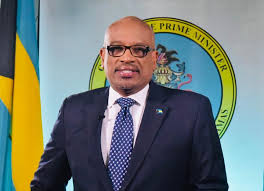





 Their motive, in offering opportunities for your students to matriculate in their universities have ulterior motives:
Their motive, in offering opportunities for your students to matriculate in their universities have ulterior motives:
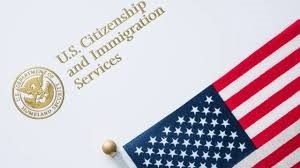 WASHINGTON — At the direction of the White House, the Department of Homeland Security has sent recommendations for further restricting legal immigration during the COVID-19 pandemic, according to one former and two current administration officials.
WASHINGTON — At the direction of the White House, the Department of Homeland Security has sent recommendations for further restricting legal immigration during the COVID-19 pandemic, according to one former and two current administration officials.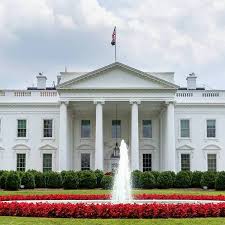 Representatives of the White House and DHS did not respond to requests for comment.
Representatives of the White House and DHS did not respond to requests for comment. Inappropriate talk can undermine societal engines … and economic engines.
Inappropriate talk can undermine societal engines … and economic engines.
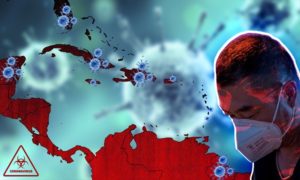
 How do we go about this change? What is the answer?
How do we go about this change? What is the answer?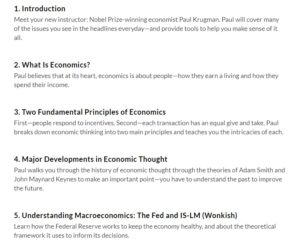
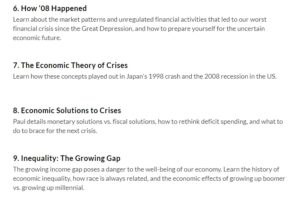
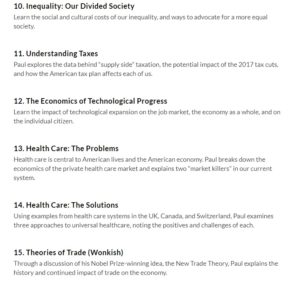
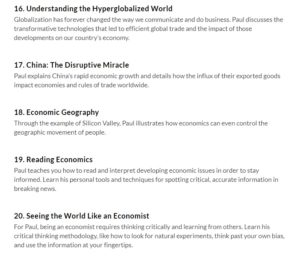
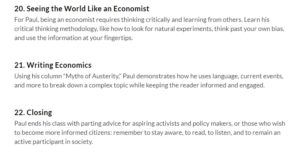
 Go Lean Commentary
Go Lean Commentary Now that the COVID-19 crisis is imperiling the world in general and Europe in particular, that once proud EU interdependence is now reverting to the dreaded state-only independent thinking and nationalism. Ouch! Be afraid; be very afraid!
Now that the COVID-19 crisis is imperiling the world in general and Europe in particular, that once proud EU interdependence is now reverting to the dreaded state-only independent thinking and nationalism. Ouch! Be afraid; be very afraid!
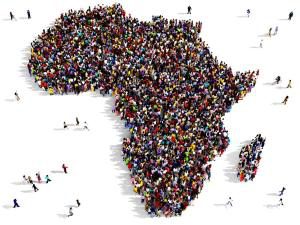 On a deeper reading of the article, I see this as disinformation that Europe has put out into the mainstream to neutralize any effort or bright ideas that Africa and the African Diaspora might have regarding a
On a deeper reading of the article, I see this as disinformation that Europe has put out into the mainstream to neutralize any effort or bright ideas that Africa and the African Diaspora might have regarding a  The whole world must act now to remediate this crisis – flatten the curve – of this
The whole world must act now to remediate this crisis – flatten the curve – of this 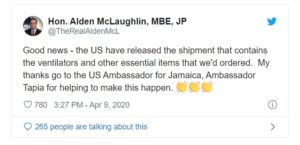
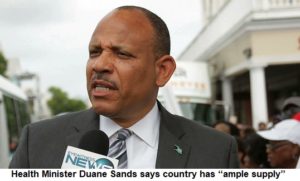
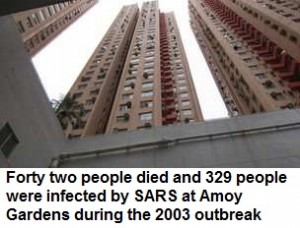 How can a community – the Caribbean region in this case – manage such an epidemiological crisis?
How can a community – the Caribbean region in this case – manage such an epidemiological crisis? The Go Lean book reports that previous Caribbean administrations have failed miserably in managing regional crises. There is no structure for cooperation, collaboration and coordination across borders. This is the charge of the Go Lean/CU roadmap. To effectuate change in the region by convening all 30 Caribbean member-states, despite their historical legacies or governmental hierarchy.
The Go Lean book reports that previous Caribbean administrations have failed miserably in managing regional crises. There is no structure for cooperation, collaboration and coordination across borders. This is the charge of the Go Lean/CU roadmap. To effectuate change in the region by convening all 30 Caribbean member-states, despite their historical legacies or governmental hierarchy.
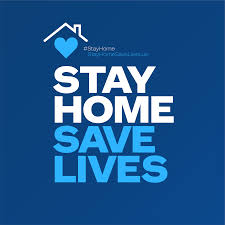
 Netflix and chill …
Netflix and chill … An over-the-top (OTT) media service is a
An over-the-top (OTT) media service is a  No one language is to be considered the default or preferred over the others.
No one language is to be considered the default or preferred over the others.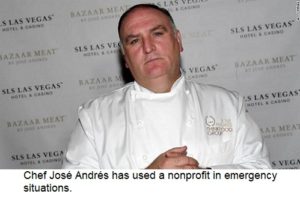 Celebrity chef José Andrés has mobilized his charity World Central Kitchen and set up camp near the Grand Princess cruise ship.
Celebrity chef José Andrés has mobilized his charity World Central Kitchen and set up camp near the Grand Princess cruise ship.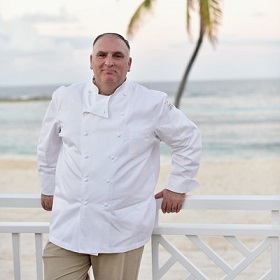 We gotta eat!
We gotta eat!
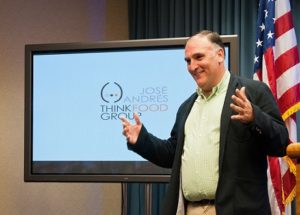
 So Brain Drains … are bad!
So Brain Drains … are bad!
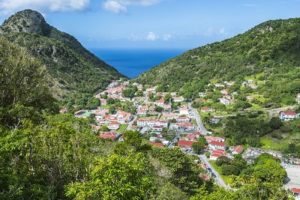


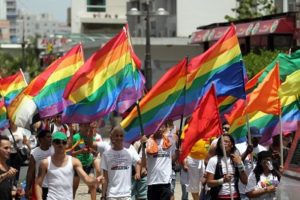

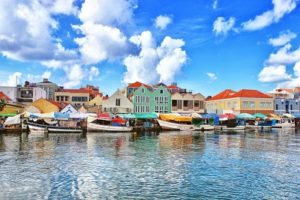

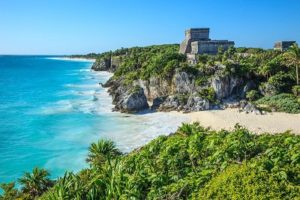
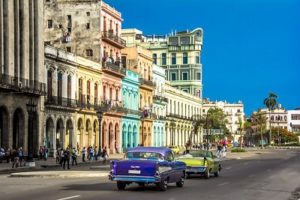


 Tiger parenting is strict or demanding parenting. Tiger parents push and pressure their children to attaining high levels of
Tiger parenting is strict or demanding parenting. Tiger parents push and pressure their children to attaining high levels of  All decent parents want to do what’s best for their children. What Battle Hymn of the Tiger Mother reveals is that the Chinese just have a totally different idea of how to do that. Western parents try to respect their children’s individuality, encouraging them to pursue their true passions and providing a nurturing environment. The Chinese believe that the best way to protect your children is by preparing them for the future and arming them with skills, strong work habits, and inner confidence. Battle Hymn of the Tiger Mother chronicles Chua’s iron-willed decision to raise her daughters, Sophia and Lulu, her way—the Chinese way—and the remarkable results her choice inspires.
All decent parents want to do what’s best for their children. What Battle Hymn of the Tiger Mother reveals is that the Chinese just have a totally different idea of how to do that. Western parents try to respect their children’s individuality, encouraging them to pursue their true passions and providing a nurturing environment. The Chinese believe that the best way to protect your children is by preparing them for the future and arming them with skills, strong work habits, and inner confidence. Battle Hymn of the Tiger Mother chronicles Chua’s iron-willed decision to raise her daughters, Sophia and Lulu, her way—the Chinese way—and the remarkable results her choice inspires. “Battle Hymn of the Tiger Mother hit the parenting hot button, but also a lot more, including people’s complicated feelings about ambition, intellectualism, high culture, the Ivy League, strong women and America’s standing in a world where China is ascendant. Chua’s conviction that hard work leads to inner confidence is a resonant one.”—Chicago Tribune
“Battle Hymn of the Tiger Mother hit the parenting hot button, but also a lot more, including people’s complicated feelings about ambition, intellectualism, high culture, the Ivy League, strong women and America’s standing in a world where China is ascendant. Chua’s conviction that hard work leads to inner confidence is a resonant one.”—Chicago Tribune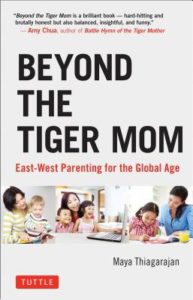 These are just a few of the fascinating questions posed and discussed in Beyond the Tiger Mom, a captivating new book by educator, author, and mother, Maya Thiagarajan. In this research-backed guide, she examines each of the “tiger mother” stereotypes and goes beneath the surface to discover what happens in Asian parenting households. How do Asian parents think about childhood, family, and education and what can Western parents learn from them? And what benefits does a traditional Western upbringing have that Asian parents, too, may want to consider?
These are just a few of the fascinating questions posed and discussed in Beyond the Tiger Mom, a captivating new book by educator, author, and mother, Maya Thiagarajan. In this research-backed guide, she examines each of the “tiger mother” stereotypes and goes beneath the surface to discover what happens in Asian parenting households. How do Asian parents think about childhood, family, and education and what can Western parents learn from them? And what benefits does a traditional Western upbringing have that Asian parents, too, may want to consider?